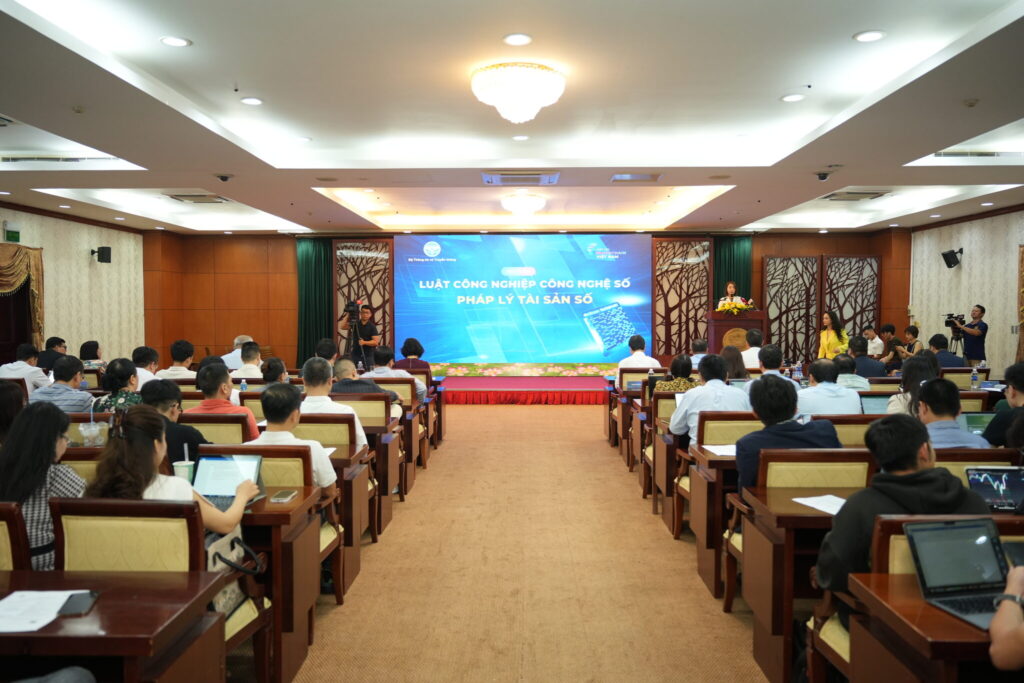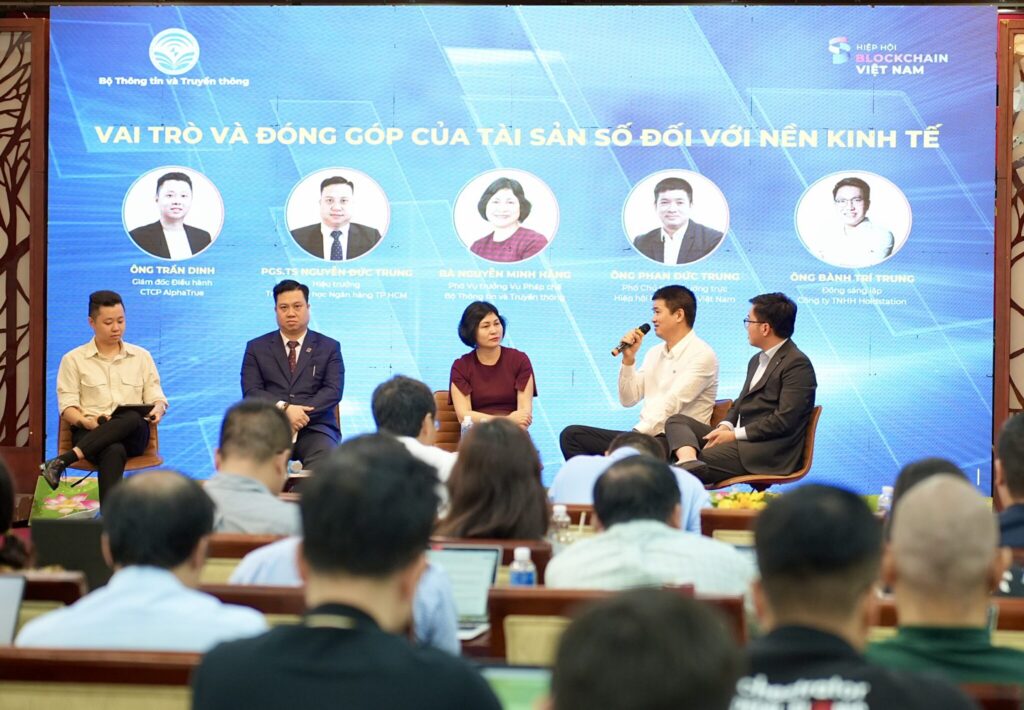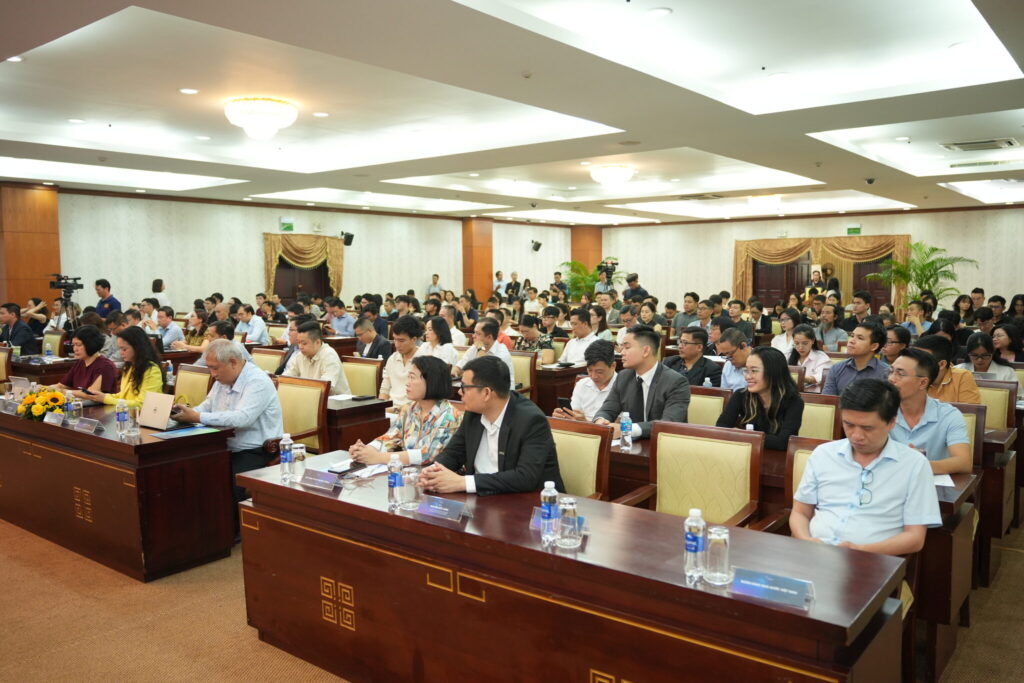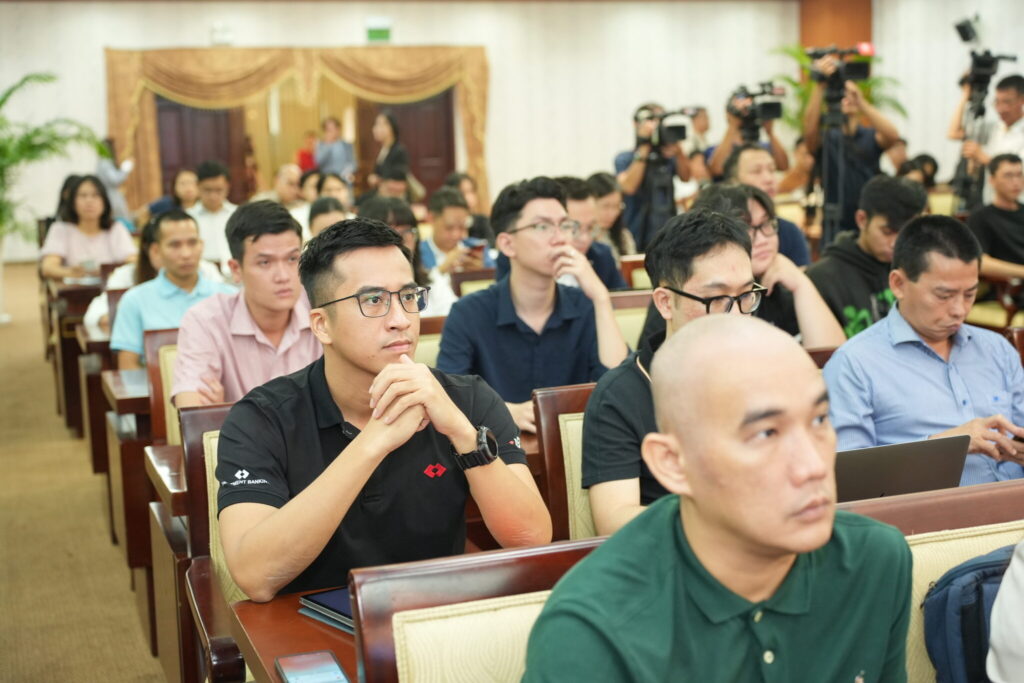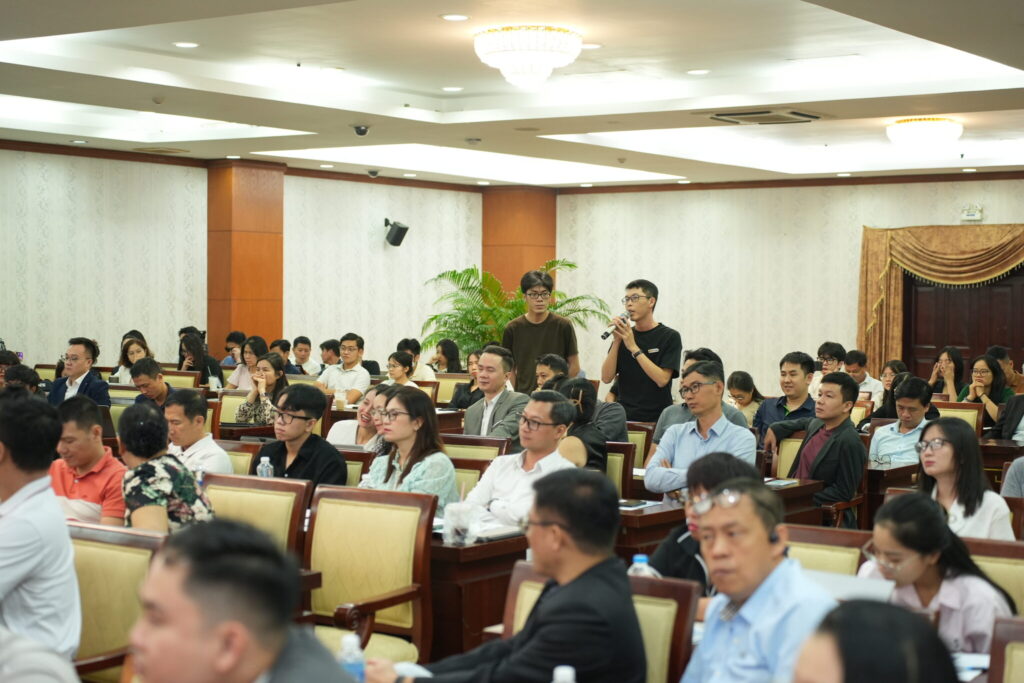“When the legal framework for digital assets is completed, the annual influx of $105 billion into Vietnam may partly flow into the legal sector, making a positive contribution to the economy and reducing risks related to money laundering, terrorism financing, and cyber fraud, which are currently major concerns,” emphasized Mr. Phan Đức Trung, Vice President of the Vietnam Blockchain Association (VBA).
On December 6, 2024, the Ministry of Information and Communications, in collaboration with the Vietnam Blockchain Association (VBA), organized the seminar “Digital Asset Legality on the Eve of the Digital Technology Industry Law” to create a platform for organizations and individuals interested in digital assets to directly provide feedback before the draft of the Digital Technology Industry Law (CNCNS) is finalized and submitted to the National Assembly for approval in May 2025.
The event was attended by representatives from various government agencies in Ho Chi Minh City, such as the Department of Science and Technology, the Department of Information and Communications, the People’s Court, the Cybersecurity and High-tech Crime Prevention Department (PA05), as well as embassies and consulates from the U.S., U.K., and Australia. It also saw the participation of educational institutions such as the University of Banking in Ho Chi Minh City, the University of Law, the University of Economics and Finance in Ho Chi Minh City, and major financial organizations like One Mount, Agribank, Techcombank Securities, VPBank, An Bình Securities, Dragon Capital, Sun Group, VnDirect, among others.
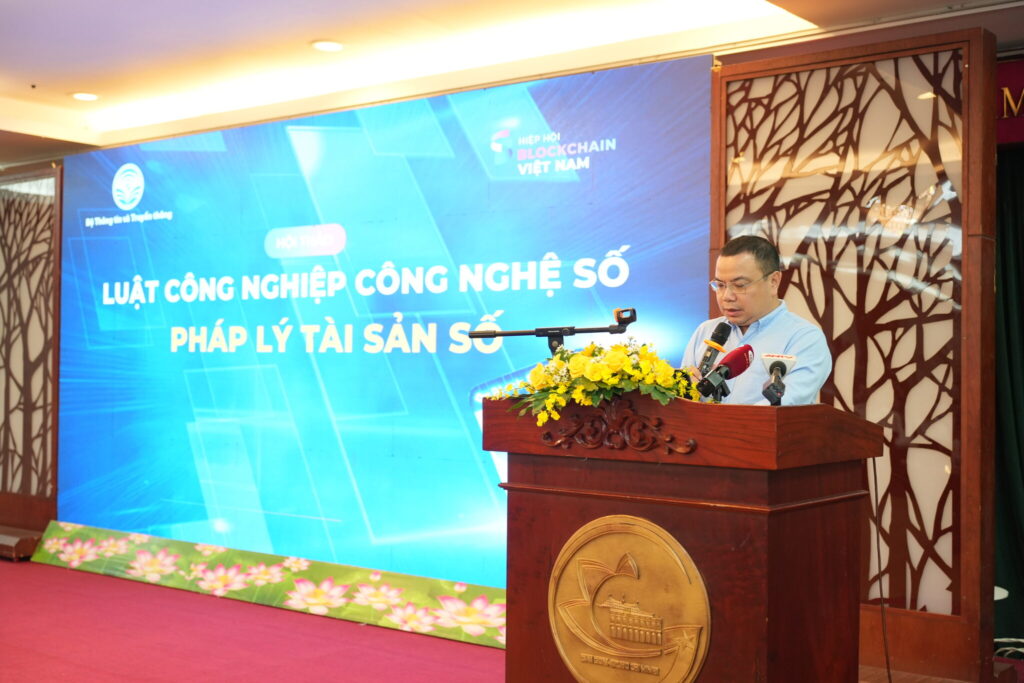
In his opening remarks, Mr. Lê Nam Trung, Deputy Director of the Department of Information and Communications Technology Industry, Ministry of Information and Communications, stated that the CNCNS Law is being drafted with the aim of institutionalizing the Party and State’s policies and directions on the development of the ICT industry and the digital technology industry. The law seeks to create a favorable legal environment for the growth of this sector, contribute to digital transformation, and drive breakthroughs in productivity, quality, and competitiveness of the economy. It also aims to effectively harness and master the key technologies of the 4.0 revolution to address Vietnam’s development challenges.
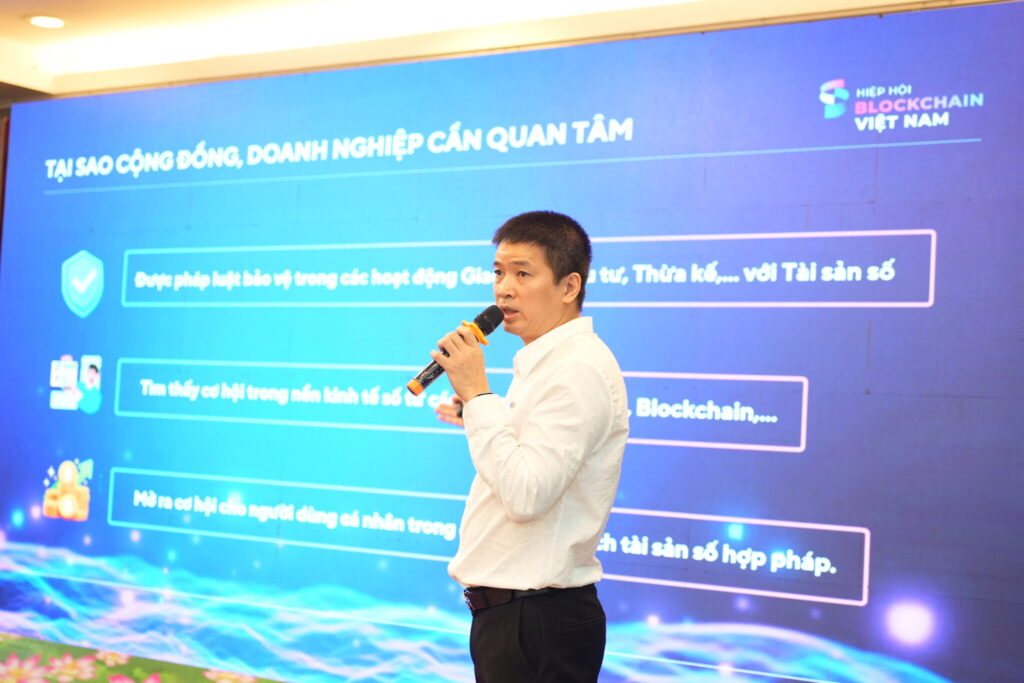
Appreciating the efforts of the Ministry of Information and Communications in drafting the law, Mr. Phan Đức Trung, Vice President of VBA, noted that after several revisions, the CNCNS Law now provides definitions that are not only very appropriate for the nature of digital assets, clearly distinguishing between digital assets and tokenized assets, but also in line with current legal regulations and similar to the regulatory frameworks of economies such as the U.S. Mr. Trung stated that the enactment of the CNCNS Law would complete the missing piece in the digital transformation process: “We already have a digital government, digital economy, digital society, and digital citizens. Therefore, legalizing digital assets— the link connecting all these areas—will help complete the overall picture of digital transformation.”
When digital assets are officially defined and regulated by the CNCNS Law, it will play a significant role in protecting users’ rights and reducing risks, boosting the digital economy, attracting investments, fostering innovation, and improving Vietnam’s position on the global stage.
“In 2024, Vietnam is expected to receive over $105 billion in foreign direct investment (FDI), a decrease from the $120 billion in 2023, but still about four times the total FDI inflows and equivalent to one-quarter of the country’s GDP. Therefore, once the legal framework is completed, a portion of this capital could flow into the legal sector, contributing positively to the economy and mitigating risks related to money laundering, terrorism financing, and cyber fraud, which are major concerns today,” Mr. Phan Đức Trung emphasized.
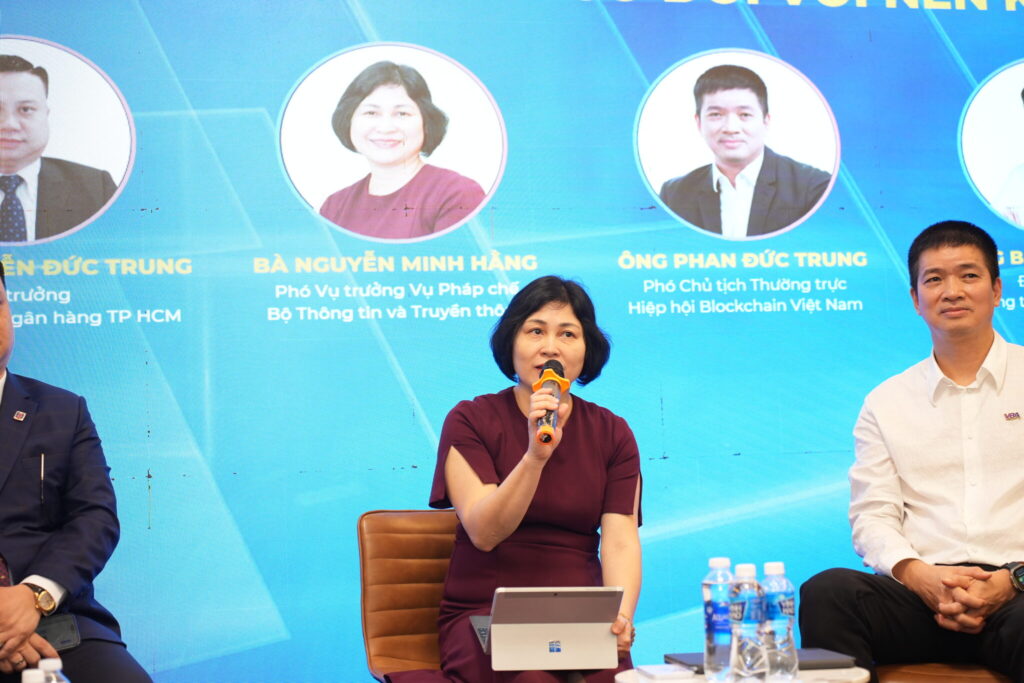
Sharing the perspective of the drafting unit, Ms. Nguyễn Minh Hằng, Deputy Director of the Legal Department, Ministry of Information and Communications, stated that the CNCNS Law is being developed with a focus on promoting, rather than strictly regulating, the digital technology industry in general and digital assets in particular. According to Ms. Hằng, digital assets worldwide are primarily represented in the form of tokenized assets, which are highly diverse in nature and cannot be fully regulated by a single law under the current legal framework. If we want to regulate all types of these assets, many other laws, such as the Civil Code, Banking Law, etc., would need to be amended.
Ms. Hằng also noted that the CNCNS Law covers many areas of digital technology and industry. The drafting unit has dedicated nearly 10% of the law (6 articles out of a total of 73) to digital assets, demonstrating a significant focus on this area.
“The regulatory authorities have never intended to ban digital assets but are carefully considering a balance between promoting development and protecting interests while managing risks,” Ms. Hằng emphasized.
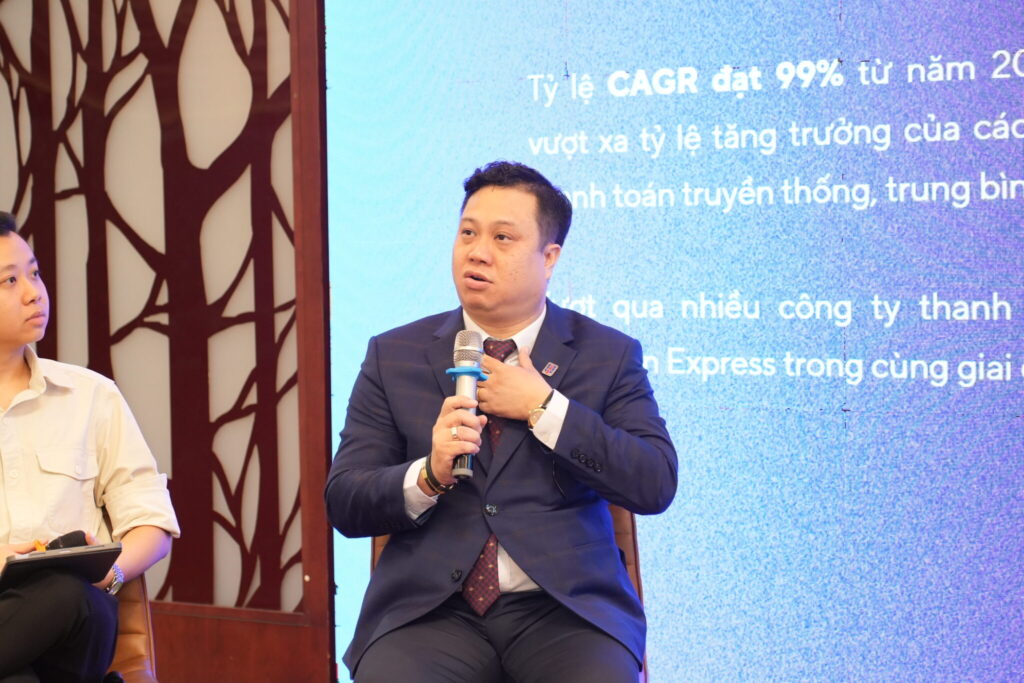
From the perspective of the banking sector, Assoc. Prof. Dr. Nguyễn Đức Trung, President of the University of Banking Ho Chi Minh City, stated that finance and banking will be the first industries impacted when digital assets come into effect. This impact will range from changes to existing products and services to the creation of an entirely new class of assets along with previously unseen products and services.
“Along with the explosion of digital assets, the awareness of digital asset management, as reflected in legal regulations, must be viewed from multiple angles. It is not only about promoting growth but also about considering risk management, ensuring that legal regulations are both practical and stable and that they will remain relevant for a long time to maintain the stability of the legal environment,” Mr. Nguyễn Đức Trung shared.

The discussion also saw the participation of Mr. Bành Trí Trung, Co-founder of Holdstation Co., Ltd., who shared his insights and specific expectations from businesses directly operating in this highly promising financial-tech sector.
This was the 10th seminar organized by the Vietnam Blockchain Association (VBA) to provide feedback on the CNCNS Law and the legal framework for digital assets and digital tokens. The seminars have been held since the end of 2022, with participation from most ministries and relevant government agencies involved in the management of digital assets, as well as a large number of local and international businesses and individuals.
Excerpt from Draft 5.2, the Digital Technology Industry Law: “Digital assets are intangible assets expressed in the form of digital data, created, issued, stored, transferred, and validated by digital technology in an electronic environment, and are protected by law under the provisions of civil law, intellectual property law, and other relevant laws. Digital tokens are a type of digital asset created, issued, stored, transferred, and validated using blockchain technology, distributed ledger technology, or similar digital technologies.”
Some images from the event:
